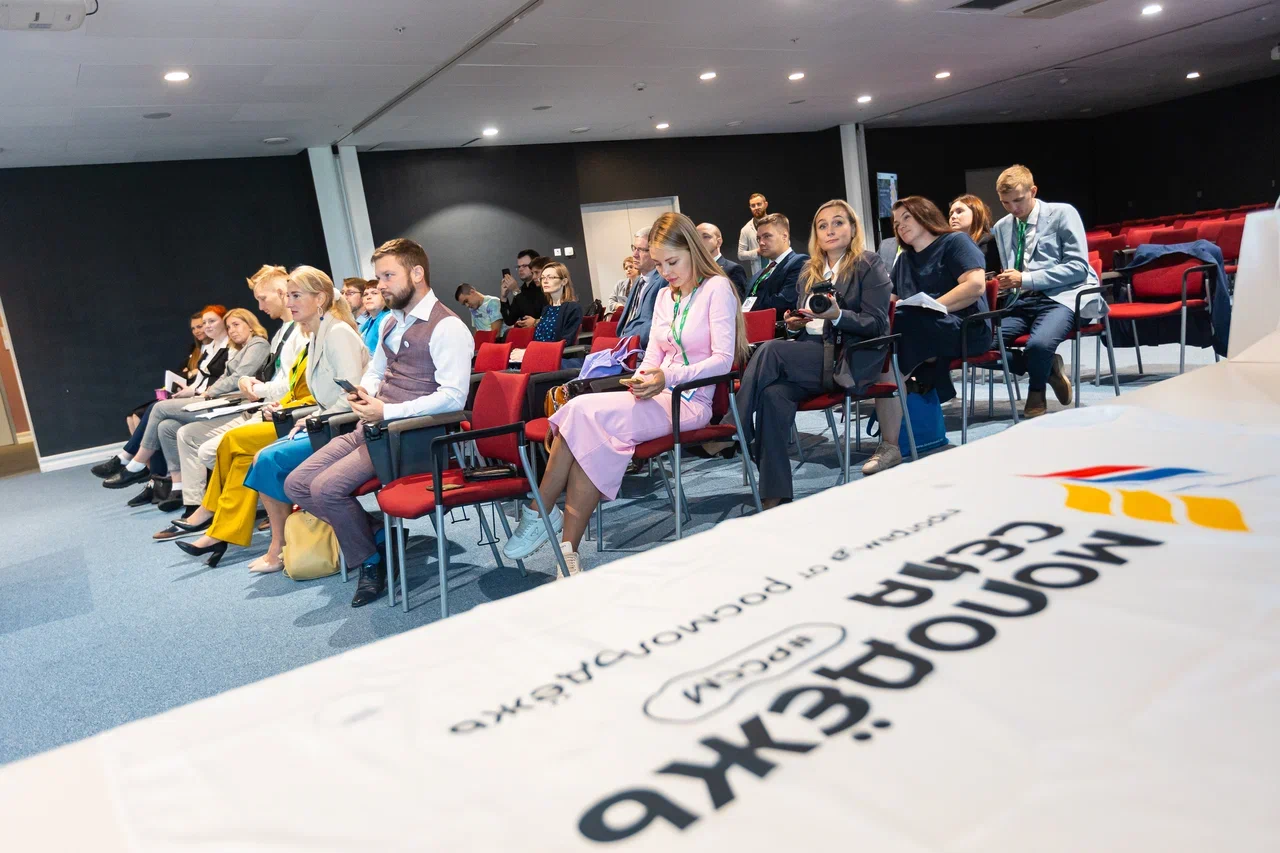Not money, but fulfilment: why young people choose the countryside
An apiary in a smartphone, a yoga tour in the countryside, unique eco-products and friendship with like-minded people – all these reasons can attract young Russians to the countryside. Participants of the 9th Interregional Rural Youth Forum, held during the AGRORUS exhibition, presented entrepreneurial practices that help young people live, work, rest and develop in rural areas.
The meeting “Entrepreneurship – rural tourism – culture and traditions in the countryside” was organized by the Russian Union of Rural Youth.
The head of the association Dmitry Pekurovsky presented the program “Personnel for Rural Areas”, developed by order of the President of Russia and launched in 2023. The Speaker noted that today a quarter of all young people in the country – 8.7 million people from 14 to 35 years old – live in rural areas. The goal of the program is to attract young people to rural areas, to form a new image of the village through bright faces, events and projects.
The Chairman of the Union spoke about the components of the program: involvement of rural ambassadors and bloggers, educational program “Rural Development Workshop”, and opening of demonstration objects – points of attraction in rural areas. Among the tools of the program are the business planning competition “Young Rural Entrepreneurs”, as well as projects related to supporting the creativity, career and sports of villagers.
“In the near future, we plan to launch the Rural Leaders competition. It will help form a talent pool for local self-government bodies. We expect more than 20,000 participants, the finals will be held in November,” the expert said.
Alexander Varenov, Deputy Chairman of the Committee for Agro-Industrial and Fishery Complex of the Leningrad Region, welcomed the participants of the session. He noted the success of young residents of the 47th region in the development of villages and agriculture and spoke about the emergence of a federal grant for agritourism. According to him, today five youth projects, including Duck Farm, Eco Estate Belovo and others, are being realized in the region thanks to the grant. Several more projects from different districts of the Leningrad Region are awaiting federal support.
Denis Ponichev, an investor, founder of the PROdvizhenie business club and community, presented an entrepreneurial perspective on business development in villages. He talked about cooperating with farms and creating his own eco-recreation centre. According to the entrepreneur, today “the time of ingenious teams has come”: thanks to cooperation, villagers can improve sales of their products and reduce the cost of machinery. The future is definitely promising: there are more than 200,000 farms in Russia today, the speaker emphasized.
He spoke about the “Territory of Opportunities” forum for aspiring entrepreneurs and the PROdvizhenie community for existing entrepreneurs. According to the expert, the work takes place offline and online with the participation of more than 600 entrepreneurs of the Leningrad Region.
Beekeeper Mikhail Konovalov presented his project “Apiary in your smartphone”, which helps citizens monitor the production of natural honey via Telegram. As part of the Pasha Honey ecosystem, M. Konovalov offered users interesting opportunities – from fresh honey and branded products to tours and the opportunity to make a profit on hives.
“We need to work comprehensively: attract people to the municipality, offer them experiences, build a community so that different people could make a creative product together,” he summarized.
The author of the WeAagro.rf project, entrepreneur Anna Sizova shared examples from her entrepreneurial activity and told about a startup in the field of personnel search for agro-industrial complex. In her opinion, recruitment is a project, and potential employees should understand the company’s raison d’etre.
“Young people are going after meanings. What is the purpose and mission of your company? What do you offer? The job description, career page, and communication peculiarities are all important. With this in mind, traditional agricultural job search services don’t always work. You can look for people in social media and thematic communities,” she said.
Olga Volf, representative of Rosselkhozbank, spoke about agritourism and the platform “Your own place in the countryside”, where offers for tourists of St. Petersburg and the Leningrad Region are presented. According to the bank, a modern agritourist is a fairly young city dweller with an income of at least 100,000 rubles, who goes out of town on weekends to a farm within a radius of 150 kilometers. Such tourists, residents of megacities, spend an average of 1500 rubles per person on farms, and can be offered a variety of tour products – from corporate and charity events to yoga tours and tours for young artists (for children).
“Scientists and Agribusiness. Solution of non-standard problems” – this report was delivered by Alexey Trifanov, leading researcher of the Institute of Agroengineering and Ecological Problems of Agricultural Production. In his opinion, if there are no means of production in the countryside, there will be no personnel there either.
“As engineers, we are asked, for instance, how to house all the birds and animals in one building. We offer modules for all kinds of animals. Another problem we are addressing is environmental, such as how to make industrial production environmentally friendly. If you have a non-standard project, we can help you!” he informed.
The entrepreneurs themselves told about the practice of creating and managing tourist complexes. Andrey Bogdanov presented the Mazanaya Gorka complex in the Volosovsky district of the Leningrad Region. In his opinion, the problems of the villages are well known – human resources, logistics and tourism potential. Olga Pyshnykh presented her project – the homestead farm “Eco-estate Belovo” in Tosnensky district. She spoke about working with tourists, getting grants, and the operations of the farm.
“People come to us for the experience: to see the animals, to take pictures, to make suggestions. We hold special events for guests, conduct yoga tours, organize summer vacations for children,” she said.
Even educators are not left out of rural tourism and ecotourism. Elena Eliseeva, a teacher-organizer from kindergarten No. 33 in St. Petersburg, shared her experience of organizing ecological expeditions around the city and region for children from kindergartens and their parents. The trips are voluntary and free of charge, but thanks to them the children study eco-trails and routes, forest animals, and compose an ecological diary. In her turn, Associate Professor of St. Petersburg State Agrarian University Alexandra Kartseva spoke about the revival of rural tourism, scientific and methodological work in this area, and holding the 1st International Forum on rural tourism within the framework of AGRORUS exhibition.
The participants noted the special social role of rural tourism in rural revival and exchanged experience in attracting young people to rural areas.

 Calendar
Calendar
 Online application
Online application
 Map
Map
 How to get
How to get



